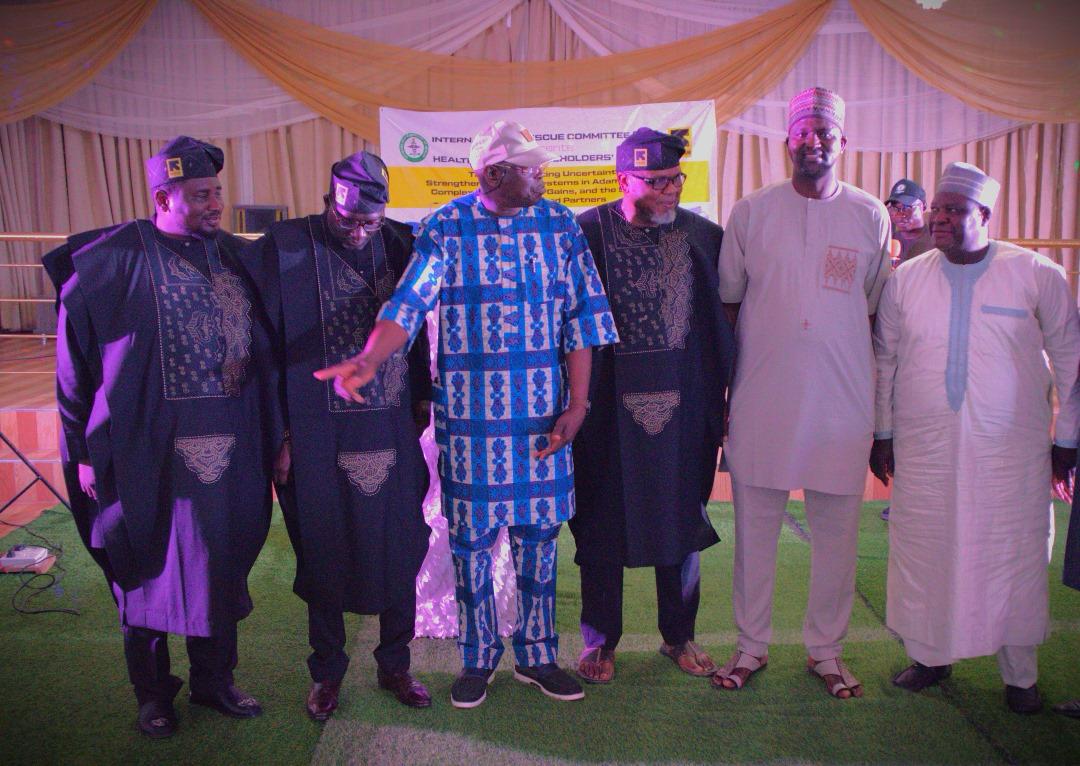A major health sector summit held on Tuesday in Yola, Adamawa State brought together key government officials, development partners, and humanitarian organizations in a unified push to build a more resilient, inclusive health system in Adamawa State.
The high-level gathering, hosted at the Fadfadis Conference & Event Center, was convened by the International Rescue Committee, (IRC) and Adamawa State Ministry of Health and Human Services in partnership with the Adamawa State Primary Health Care Development Agency (ADSPHCDA) and Participants used the forum to share insights, reflect on achievements, and explore long-term strategies for aligning emergency humanitarian response with sustainable health system development.
In a keynote speech, IRC Nigeria Country Director Babatunde Ojei traced the organization’s impact in Adamawa from its initial flood response in 2012 to its current work across 18 Local Government Areas. He highlighted key achievements, including clinical care for more than 267,000 people, reproductive health services for nearly 48,000, and the rehabilitation of 35 health facilities since 2020. The IRC has also trained 283 CHIPS agents and supported the enrollment of nearly 14,000 vulnerable residents in the state’s health insurance scheme.
“This is not charity. This is system building,” Ojei said, emphasizing the importance of long-term planning and deeper collaboration among all stakeholders. “A resilient health system is not built overnight. It is forged in partnerships.”
Later at the event honoring the IRC’s leadership team, Dr. Sulaiman Saidu Bashir, Executive Chairman of the ADSPHCDA, spoke frankly about the dual reality facing the state’s health system, progress made in restoring services and the persistent challenges of insecurity, limited infrastructure, and displacement. He praised the IRC’s work as both timely and strategic.
“What we need now is not just more but better. Better alignment, better investment, better localization, and better accountability,” Dr. Bashir noted.
Earlier in the day, IRC Field Coordinator for Adamawa, Mr. Timothy Golfa, welcomed participants with a call for unity and strategic reflection. He acknowledged the role of state ministries and other partners and highlighted recent efforts to improve nutrition outcomes, including the launch of a simplified treatment protocol for malnourished children.
Golfa also introduced Mr. Modou Diaw, IRC’s Regional Vice President for West Africa, whose presence was seen as a strong endorsement of Adamawa’s growing importance in regional health planning.
Throughout the summit, the central theme remained clear: moving from reactive crisis response to proactive system building. With increasing pressures from conflict, climate change, and shrinking donor funding, speakers underscored the urgency of strengthening local ownership, ensuring inclusive governance, and making health systems more shock-responsive.
The summit concluded with a joint commitment to keep momentum going strengthening Adamawa’s health system one facility, one community, and one partnership at a time.


